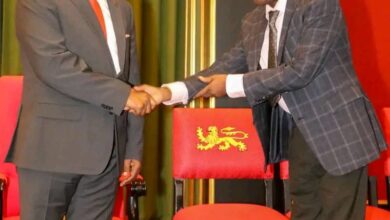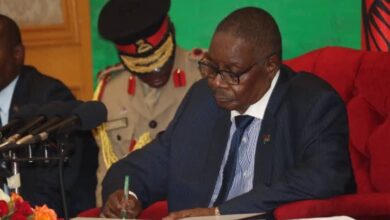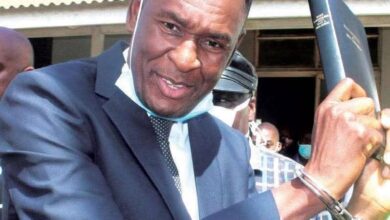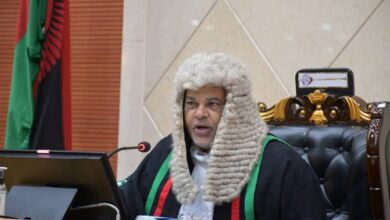Columns
A call to justice: Standing with the vulnerable

By Burnett Munthali
Minister Eng. Vitumbiko Mumba’s recent reflections on his Facebook page have sparked an important discussion about justice, morality, and our shared responsibility to protect the vulnerable in society. Drawing inspiration from the wisdom of Martin Luther King Jr. and the profound message in Psalm 10:17-18, Mumba reminds us of the enduring call to do what is right, even in the face of opposition.
King’s declaration, “My obligation is to do the right thing. The rest is in God’s hands,” serves as a guiding principle for those seeking to uphold justice. The accompanying passage from Psalms reinforces this message, assuring the oppressed that their cries for justice do not go unheard by God. Instead, God strengthens their hearts and listens to their pleas, promising vindication and protection from oppression. For Mumba, these words highlight the need for unwavering courage and faith when confronting societal injustices.

In his post, Mumba acknowledges a sobering reality: doing what is right often invites attacks and negativity. Those who challenge the status quo are frequently met with resistance from individuals and systems that benefit from exploitation. Yet, he emphasizes that these attacks are not our burden to carry. As he writes, “It is God’s responsibility to worry about the attacks you suffer because you are doing what is right.” Our responsibility is to stand firm, to defend the truth, and to advocate for those who cannot advocate for themselves.
This message is particularly pertinent in Malawi, where systemic injustices continue to plague the most vulnerable members of society. Mumba poses critical questions about the ethical practices of businesses and employers. Is it justifiable, he asks, for businesspeople to adjust the prices of goods and services each time the Kwacha is devalued while refusing to increase the salaries of their employees? The minimum wage of K90,000 per month is barely enough to sustain a household, yet many employers use it as an excuse to deny workers a living wage. Meanwhile, the cost of living rises unchecked, widening the gap between the wealthy and the poor.
Mumba also highlights exploitative practices in agricultural estates, where workers are subjected to deceitful weighing scales. Laborers are told that their daily target is 60 kilograms, but in reality, the tampered scales reflect weights closer to 75 kilograms. Such manipulation forces workers to endure excessive labor for the same inadequate pay. These practices strip workers of their dignity and perpetuate a cycle of poverty and oppression.
As a society, we cannot turn a blind eye to these injustices. Mumba’s call to action challenges us to confront these issues head-on, to side with the vulnerable, and to demand accountability from those in positions of power. Employers must recognize the humanity of their workers and ensure fair treatment, while policymakers must enforce labor laws that protect the rights of employees.
But beyond institutional reforms, Mumba’s message is a call to individual and collective moral responsibility. It asks us to reflect on our own roles in perpetuating or dismantling systems of oppression. Are we complicit in ignoring the suffering of others, or are we active participants in creating a fairer society?
The mantra #PeopleOverPolitics encapsulates the essence of Mumba’s message. It is a reminder that the needs and dignity of people must take precedence over profit, politics, and personal gain. The time to act is now. We must not only hear the cries of the oppressed but also amplify their voices and advocate for their rights.
In standing with the vulnerable, we honor not only their humanity but also our own. As the Psalmist reminds us, God strengthens the hearts of those who seek justice. Let us be bold in doing what is right, knowing that our efforts are not in vain and that divine justice will prevail. Together, we can build a society where fairness, compassion, and equality are not just ideals but lived realities.






